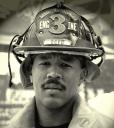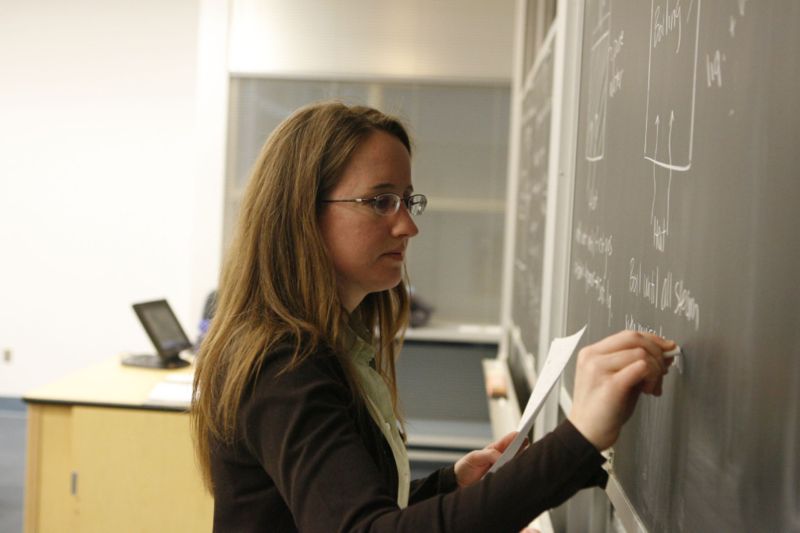 By Scott T. Allison and George R. Goethals
By Scott T. Allison and George R. Goethals
Over the past year, we’ve blogged about many important heroes. We described the globally transforming impact of Mahatma Gandhi, Nelson Mandela, and Martin Luther King, Jr. We shared the remarkably inspiring stories of Pat Tillman, Thomas Jefferson, and Mother Teresa. And we discussed heroes who displayed unusual courage in doing the right thing, people such as Oprah Winfrey, Muhammad Ali, and John F. Kennedy. Most of these individuals are household names whose faces we recognize and whose heroism is known to much of the world.
Yet, having said all this, they may not be our most important heroes.
Recently, we conducted a study in which participants were asked to estimate the prevalence of six different types of heroes in our society. The participants were given a sheet of paper listing the six categories of heroes, along with a brief definition of each.  Transforming heroes were defined as people who transform the society in which they live. Traditional heroes were described as individuals who show exceptional talent or who perform a single great moral action. Transparent heroes were defined as individuals who do their heroic work behind the scenes, outside the public spotlight. Transitional heroes were described as people whose heroism is unique to a particular developmental stage in our lives. Trending heroes were defined as individuals who are on a trajectory toward becoming heroes. And transitory heroes were described as people who perform a single nonmoral action that bring them great momentary fame.
Transforming heroes were defined as people who transform the society in which they live. Traditional heroes were described as individuals who show exceptional talent or who perform a single great moral action. Transparent heroes were defined as individuals who do their heroic work behind the scenes, outside the public spotlight. Transitional heroes were described as people whose heroism is unique to a particular developmental stage in our lives. Trending heroes were defined as individuals who are on a trajectory toward becoming heroes. And transitory heroes were described as people who perform a single nonmoral action that bring them great momentary fame.
The results of our study revealed that people clearly view one of these types of heroes as far more abundant in our society compared to the others. Which hero is it? The transparent hero. Participants estimated that 65% of all heroes are transparent — the invisible individuals among us whose heroic work we often take for granted, yet they perform their heroism quietly and bravely while others bask in the limelight. No other category of heroes came close to matching this percentage. Participants judged traditional heroes to comprise 13% of the heroes among us; transitional heroes scored 10%, transforming heroes 7%, trending heroes 3%, and transitory heroes 2%.
Who are these transparent heroes that dominate the heroic landscape? We’ve found that people have no trouble at all thinking of many examples of these invisible heroes. They are our parents who made great sacrifices for us. They  are the teachers who molded our minds, the coaches who taught us discipline and hard work, and healthcare workers, emergency first responders, and military personnel who protect us and save us from calamity. These heroic individuals are everywhere, quietly going about the business of nurturing us and keeping us safe. They are quite possibly the most under-appreciated members of our society.
are the teachers who molded our minds, the coaches who taught us discipline and hard work, and healthcare workers, emergency first responders, and military personnel who protect us and save us from calamity. These heroic individuals are everywhere, quietly going about the business of nurturing us and keeping us safe. They are quite possibly the most under-appreciated members of our society.
And so if you see parents who are raising a child under challenging circumstances, we urge you to show your appreciation to them. We encourage you to thank your teachers, both past and present. Take a moment to express gratitude to your former and current coaches and mentors. The next time you encounter a law enforcement officer, paramedic worker, hospital employee, or firefighter, be sure to let them know how heroic, extraordinary, and appreciated they are. And most importantly, be sure to shake the hand of the next military serviceman or woman you see. Their heroism may be unseen to most of society, but their sacrifice makes every good thing in our lives possible.
These invisible heroes may never make it into our school textbooks, garner their own Wikipedia entries, or have their own youtube video that goes viral. But they are all indispensable members of our society. These hidden heroes are also our most essential heroes.
– – – – – –
Do you have a hero that you would like us to profile? Please send your suggestions to Scott T. Allison (sallison@richmond.edu) or to George R. Goethals (ggoethal@richmond.edu).
I couldn’t agree with this more. We live in a world of heroes. The clowns and criminals get all the publicity, but our civilization is held together, and advanced, by the great mass of people who do genuinely care about others and who will give their money, time and tears to complete strangers. Having worked in the health care industry for about 25 years now, I have seen many such people; many people who daily bear the weight of others’ sorrow and save the world one life at a time.
I agree with this blog. Our silent heroes are unable to receive the limelight that they deserve for helping our society stay strong. These unsung heroes saves lives each day and we do note give them the credit that they deserve. Teachers for example are not given the monetary value that they deserve, especiallly when they have to educate and teach discipline to a child.
We don’t need to save the world to be a hero. In everyday life, Hero is more likely to be the person realized his dream. That happens every day and every minute. Everyone is a hero. The important thing is if you can notice that.
These transparent heroes are not only the most abundant in our society, but could be argued to be some of the most influential. The teachers, parents, mentors and coaches that make up this group of heroes are the people who mold our nation’s youth. The youth that ends up becoming the other categories of heroes that are so well publicized. These people are the reason we have the other groups of heroes. It is a shame they do not get the recognition, but at the same time, they do not need it. They are doing these good deeds because they want to, not because they will become famous for them, which I think makes them the most respectable heroes of all the groups, as well as the most abundant.
I appreciate this post in particular, because the reality is that the most abundant heroes often are invisible. It takes reflections such as yours, to open many peoples eyes to such realities.
Unsung heroes can be ordinary people that make a lasting positive change in the lives of other people. True heroes have a positive generational impact on the lives of other people and their kids and their grandkids and kid not even born yet. Each of us has the power to be a generational hero and to leave the world a better place than you found it. And best of all you don’t have to fight fires or even land a plane in the fog; you can be a hero by reaching out with spontaneous acts of kindness that will inspire people’s hearts and then miracle’s will begin to grow.
Dean Sampano
Life is not always about finding, it’s about being by Dean Sampano
Life us not about finding, its about being. You see, it’s not about finding the right women; it’s about “Being” the right man. And its not about finding the right job its about being the right leader and perhaps most of all it’s not about finding the right friends, it’s about ‘Being” the right friend.
By Dean Sampano, President, Mass Consultants Canada